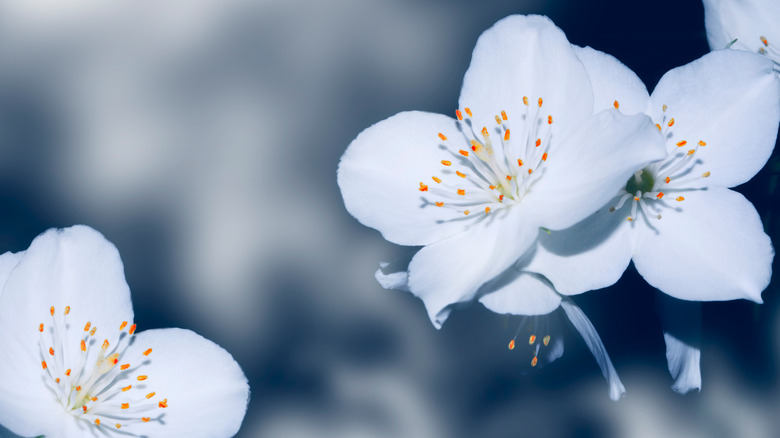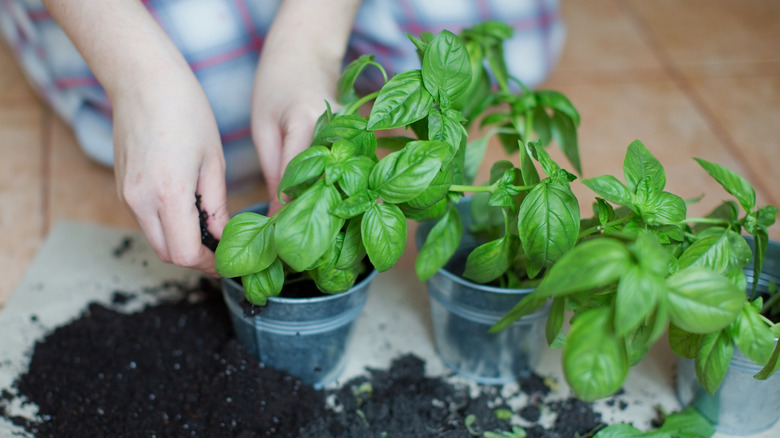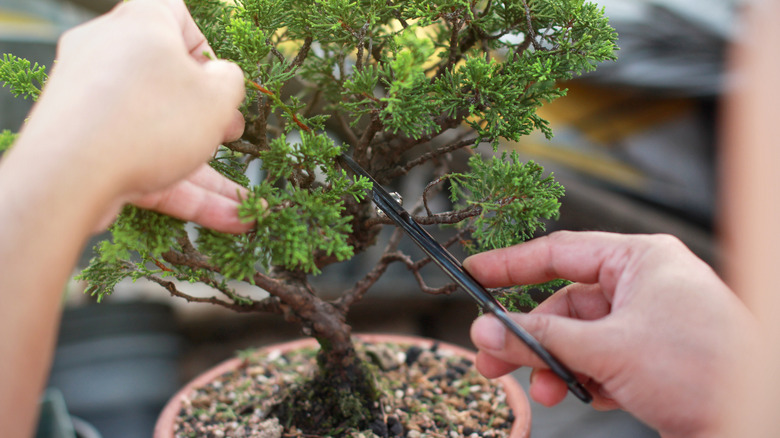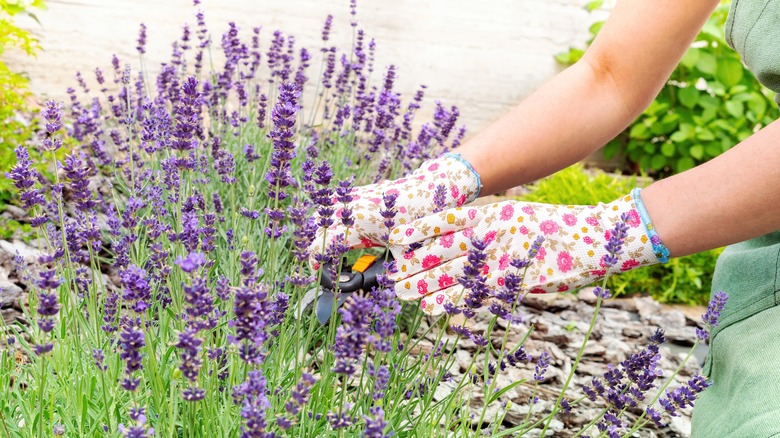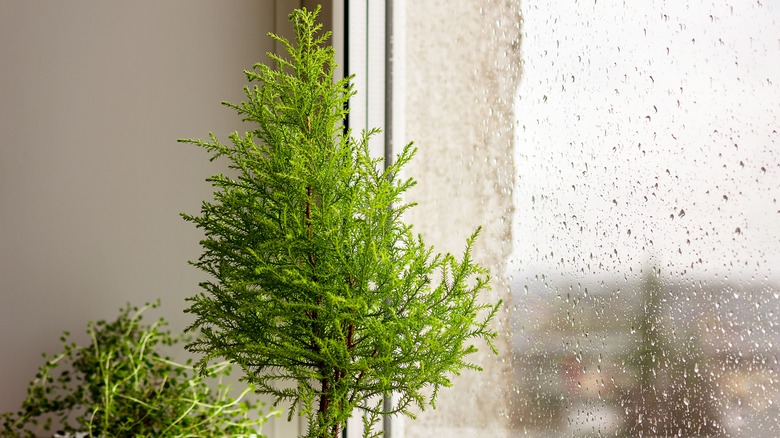5 Calming Plants To Add A Little Tranquility To Your Home Office
The home office has become a mainstream concept in the modern American workforce. Americans are spending more time at home than ever in the post-pandemic world (with McKinsey & Company reporting that only 13% of workers allowed to stay home chose not to), and this has led to an uptick in concern for creating the perfect home-working environment.
E Offices reports that a clutter-free office is one that can help instill enhanced productivity and focus, but many people still find it hard to make the time to tidy their space on a regular basis when professional cleaning crews are no longer involved in the equation. Indeed, the management of this area in its entirety falls to the home office worker. This can be a daunting proposition for those who have never worked at home before. On top of many other stressors that come along with this type of working arrangement, maintaining focus and clarity of vision isn't always simple. Fortunately, studies have shown that spending time around nature can add a vital element of peace and tranquility to your day (via the American Psychological Association). Therefore, enlisting the help of houseplants can make a big difference in your day-to-day schedule while working out of a home office.
Many varieties can add a unique level of calm and comfort while also looking great as a decorative item for your workspace. With these five common plants, improving your home working environment is easier than you might imagine.
1. Jasmine
Jasmine plants (Jasminium officinale, via Britannica) are native to the Iranian highlands and make for a wonderful addition to any workspace. Jasmine produces a stunning white flower and a sweet aroma. Solara Mental Health reports that this plant can be a highly effective means of combatting stress and mental health concerns as you work your way through the daily grind. Solara Mental Health also notes that one of the main benefits of office plants is a greater flow of oxygen throughout the workspace. Poor oxygenation is a major factor in the presence of palpable stress and low productivity levels that people can experience in a dull and dreary work environment. The air can become stagnant and mentally suffocating without fresh air and bright plant additions.
The subtle and delicate growth of a jasmine plant, coupled with its beautiful white flower, makes for a wonderful accessory to any workspace. Adding one to your windowsill or a corner of your desk can provide the spark of inspiration and a critical refresh that any employee working from home may be looking for in their daily workload.
2. Basil
Basil plants (Ocimum basilicum, via Purdue University Extension) are incredibly easy to cultivate. Basil is a typical kitchen herb and is used in countless dishes from a wide variety of different cultural backgrounds. For example, Thai basil is a staple ingredient in creating all kinds of curry dishes, whereas the typical green leafy plant that Americans might be accustomed to is used heavily in Italian and other European recipes.
A new plant can be grown from a cutting taken from any store-bought variety (via Savvy Gardening). As long as your purchase includes some of the stems and not just leaves, you can generate a new basil plant in a matter of days or weeks. Taking a cutting is as simple as trimming just below one of the nodes and plucking off all of the leaves except for a few small ones at the top. Placing this cutting in a cup of water and setting it on a sunny windowsill will allow it to generate new roots, which can then be planted in the soil after another few days to a week of growth.
Furthermore, Healthline notes that basil is an adaptogen, making it a great stress-relieving plant to have in the house. Not only will you be able to freely add this plant's leaves as a topping to all kinds of dishes that you might create in the kitchen, but the smell and atmosphere that your new basil cultivars bring to your home office are also second to none.
3. Juniper bonsai tree
A juniper bonsai tree (Juniperus communis, via Woodland Trust) is one of the most popular species that new bonsai trainers bring into their lives, per Bonsai Empire. Bonsai trees have a long and storied history in East Asia and beyond; the art is an effort in planning and execution. Bonsai trees can live for hundreds of years in the right conditions, and a dedicated artisan can bring to life truly magical twists and turns in their plant. As a houseplant, these trees are often quite resilient, and a juniper bonsai can act as a wonderful jumping-off point for anyone looking to get into this practice.
A juniper bonsai tree requires consistent sunlight, so placing it on a windowsill or the corner of your desk that sees great natural lighting is a must. These trees only grow to about 1 foot tall, maximum, and Dr. Axe suggests that they may aid in the healing of sore throats and general fatigue. The look and any potential health benefits that one can bring into your life provide an immensely uplifting installation to your home office. However, the major benefit of any type of bonsai tree is the natural stress relief that comes through caring for and training the plant. A dedicated owner must prune the tree's aerial growth and look after its root system on a regular basis. These tasks can be immensely calming and are often the major draw for new bonsai owners.
4. Lavender
Lavender plants (Lavandula stoechas, via Science Direct) are often associated with calmness and serenity. These cultivars are often found in countryside locations and grow into dazzling purple shrouds that rise up in interminable rows. Lavender oozes a peaceful scent and an aura of calmness. A study published in Hindawi notes that this plant has been an important medicinal herb for a very long time. It's suggested that lavender oil may work as an effective means of combating neurological issues as well and commonly makes its way into both herbal remedies and more clinical approaches to wellness, according to the study.
One thing that's certain about lavender plants is their majestic scent. Well and Good notes that it is often referred to as the most relaxing scent imaginable. The coloration of a lavender plant's tiny purple flowers and the smell created by it combine to provide a wonderful sensory experience for those looking to incorporate a new level of relaxation and peace in their home working routine. There aren't many alternatives that provide the same level of tranquility as a simple but beautiful lavender plant.
5. Lemon cypress tree
A taller option that homeowners can take advantage of is the lemon cypress tree (Hesperocyparis macrocarpa, via North Carolina State University Extension). This addition will grow to about 3 feet tall, brings a hugely potent scent along with it, and can be used in place of scented candles to enhance the atmosphere of your workspace. These short trees can be easily shaped and make for a great style enhancer on top of their wonderful scent. Dr. Axe reports that a lemon cypress is full of essential oils that are commonly used in aromatherapy circles. The oils are prized for their ability to affect respiratory health in a supremely positive way. Lemon cypress is also valued for its ability to positively impact inflammation issues and work to alleviate anxiety and stress levels.
Stress reduction is a common theme among people working from home. The increased workday demands on your home's space can make for an increasingly difficult task of separating your work responsibilities and the relaxation and comfort you hope to take from time spent at home. However, with a lemon cypress tree or any other plant on this list, instilling a sense of calm and peacefulness over your workday is easier than ever.

